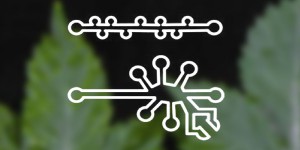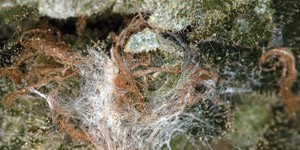Cannabidiol, also known as CBD is one of the two most important cannabinoid components in the cannabis plant. It is found in varying proportions in different strains; while in some it has only a negligible presence, in others it may be the most abundant component, or occur in roughly the same proportions as THC.
The plant has a number of compounds that have a psychoactive effect (altering perception and mood) and others which do not. The former include delta-9-THC, CBN (cannabinol) and delta-8-THC, which have different potency and concentration levels in the plant. Of these, the most potent and abundant is delta-9-THC. It is these compounds that cause the effects sought by recreational users – in other words, the "trip".
CBD, in contrast, although it is a composite that acts on the central nervous system and is therefore psychoactive, does not have the psychotropic effects of THC. On the contrary, it antagonizes the psychotomimetic effects (psychotic similes) caused by THC.
At this time, CBD is the cannabinoid that is recognised as having most beneficial effects for the treatment of various symptoms and diseases. It is also the one with the greatest therapeutic margin, albeit with minor side effects in a wide range of doses. In general, CBD is very well tolerated.
Therapeutic properties of CBD
The most important therapeutic properties ascribed to CBD, with varying degrees of evidence quality are as an:
- anti-inflammatory
- analgesic
- neuroprotector
- anticonvulsant
- antioxidant
- anti-nausea and anti-emetic
- antitumoural
- anxiolytic
- antipsychotic
- reducer of heroin, cocaine and alcohol cravings
- immuno-modulator
Because of these properties, CBD is used in the treatment of many different diseases, including:
- epilepsy
- neurodegenerative diseases (e.g. Alzheimer's disease, Parkinson's disease and multiple sclerosis)
- chemical dependencies
- anxiety
- psychosis
- autistic spectrum disorder
- chronic inflammatory diseases such as chronic polyarthritis, Crohn's disease, inflammatory bowel disease
- accompaniment to chemotherapy
- anti-tumour treatment
In addition to its therapeutic uses, CBD is also recommended as a food supplement in some jurisdictions.
Adverse effects of CBD
Among its adverse effects –general mild to moderate– when used in therapeutic doses, CBD may induce tiredness, drowsiness, dryness of the mouth, headaches, dizziness and reduced appetite. In general, these symptoms improve with a reduction in the CBD dose and disappear altogether when treatment is suspended.


